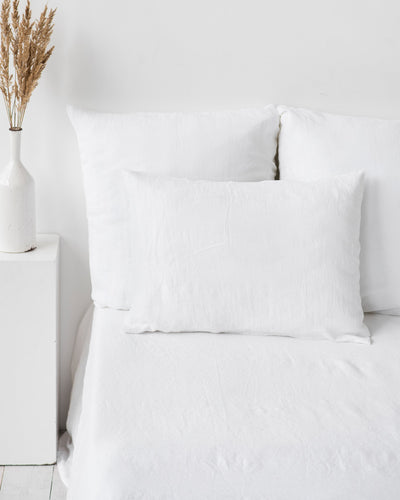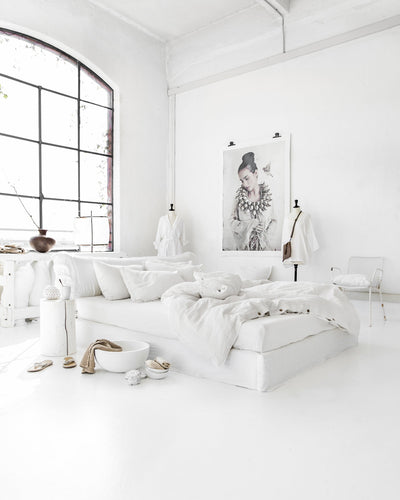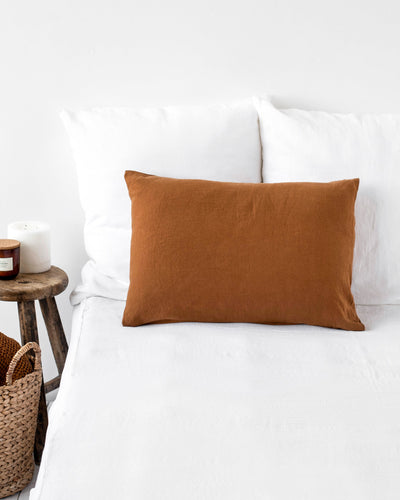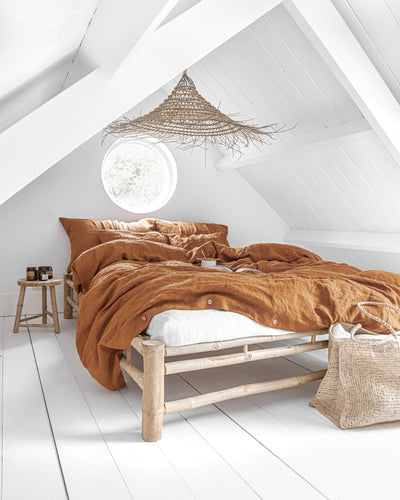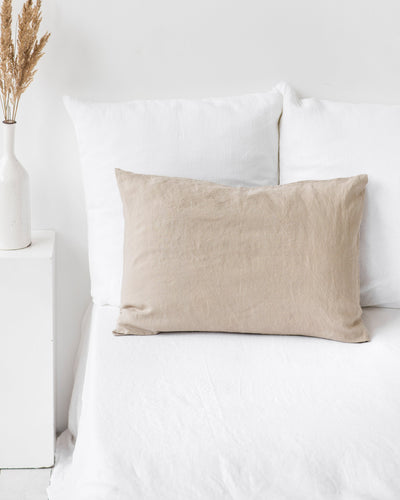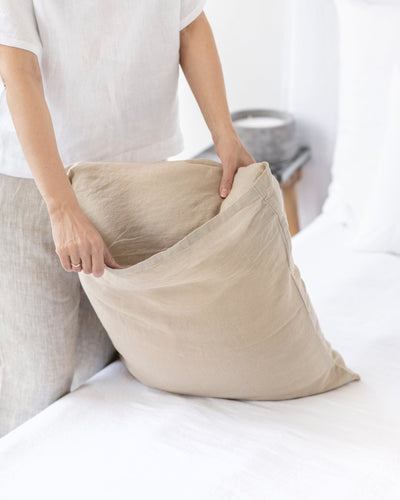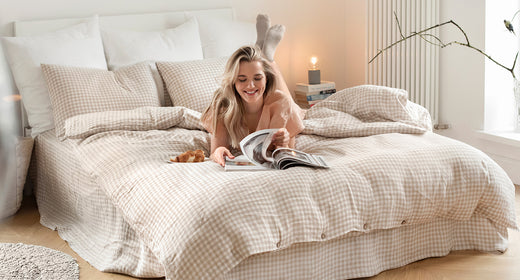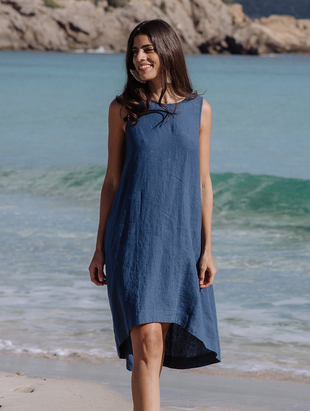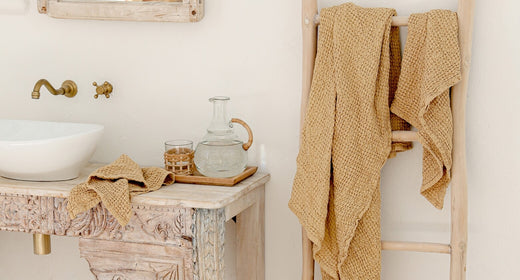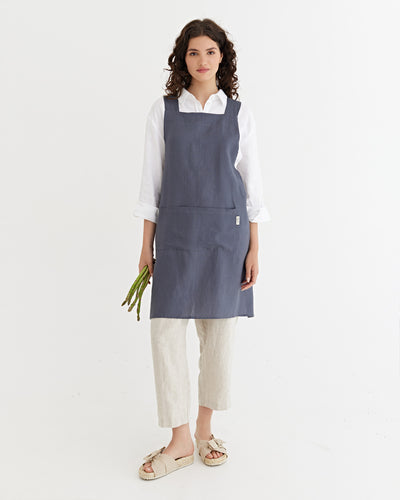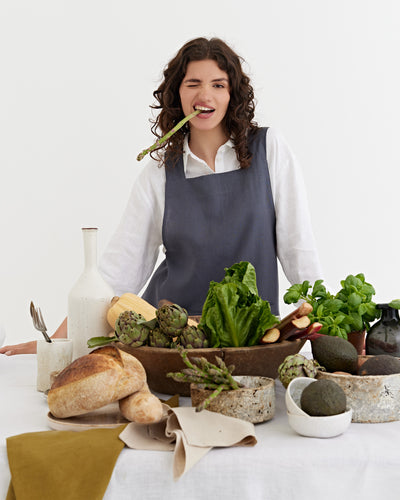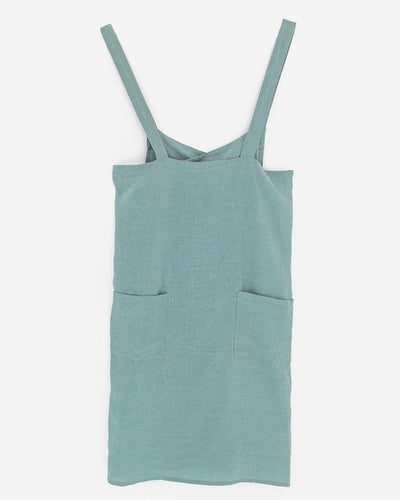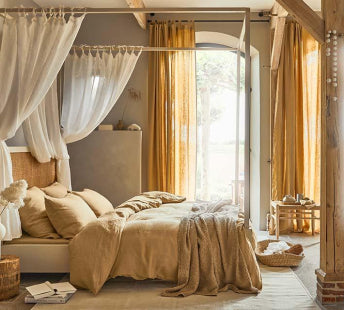Different Types of Aprons: From Kitchen to Craft
As we take the world by storm, aprons faithfully serve us in various domains in our daily lives. From culinary to craftsmanship, each type of apron tells a unique story, reflecting the tasks it aids.
Follow along as we explore the diverse world of aprons, uncovering their distinct types, materials, and functionalities. Whether you're a passionate chef or an imaginative crafter, there's an apron crafted just for you. So, let us delve into this fascinating garment and discover where practicality meets creativity.
Types of Aprons


Aprons are a crucial and valuable work tool in many industries. Therefore, there are several types of aprons that can be used for various purposes, such as:
- Bib aprons: They are considered a more traditional style of apron, offering coverage for both the upper and lower body. Bib aprons are a popular choice in the catering and hospitality industries. Moreover, they are versatile in colors and styles.
- Gardening aprons: They are durable garments designed to protect clothing from soil and debris and can have multiple pockets for carrying gardening tools and accessories. They can come in full or half-length, depending on whether you need full or partial protection from soils, insects, or weeds.
- Waist aprons: As they are most commonly worn by waitstaff, they are often called server aprons. They cover the hip area without restricting movement and can come with front pockets to hold pens, pads, or other useful items.
- Crossback aprons: You can find these aprons by different names, such as Japanese aprons or pinafore aprons. They're similar to bib aprons in the front, but they lack the bib. They are comfortable and can come in various cute designs.
Materials and Fabrics


There are many materials that can be used to make aprons, each with its unique characteristics:
- Rubber: Rubber aprons are resistant to chemicals and oils, making them suitable for laboratory work or industrial applications where protection against hazardous substances is necessary.
- Vinyl: This material makes aprons waterproof, hence very suitable for tasks involving liquids. They're used in food service, welding, gardening, and industrial settings.
- Leather: It's probably one of the best materials, as leather aprons offer excellent protection against fire, chemicals, and sharp objects.
Furthermore, aprons can come in various fabrics depending on the intended use, comfort, design, and durability. Some popular fabric choices for aprons are:
- Cotton: As the most popular fabric, cotton aprons are ideal for baking or working with dry materials. Furthermore, cotton is a breathable, gentle, and durable fabric. Because they're not waterproof or water-resistant, they're unsuitable for applications where you'll get wet or dirty. Therefore, using them at home, in bakeries, and other kitchen environments is best.
- Polyester: Polyester is durable, quick-drying, and resistant to wrinkles and stains, making polyester aprons ideal for industrial and commercial settings, especially if they need frequent washing.
- Linen: Linen is an excellent fabric for aprons as it's a natural, lightweight fabric with breathability and moisture-wicking properties. They're ideal for hot or humid environments and can be used in bakeries, outdoor barbeques, home kitchens, etc. They also have a natural, elegant look, suitable for upscale or professional settings.
- Denim: As a heavyweight cotton fabric, denim aprons are sturdy and durable, making them a good option for non-food-industry jobs like carpentry, gardening, and mechanics.
- Canvas: Likewise, canvas is a sturdy, heavyweight fabric perfect for tasks that involve rough use or heavy tools, like woodworking and other industrial uses. However, it can still be used as a barbeque apron.
Practical Uses of Aprons
Aprons serve practical purposes in various activities. Here's how they're commonly used in the kitchen, gardening, and crafts and workshops:
In the kitchen: Cooking and baking
- Protection from stains: A suitable apron can shield clothing from food stains, grease splatters, and spills while cooking or baking.
- Hygiene: In professional kitchens, aprons maintain hygiene by acting as a barrier between the chef's uniform and the food being prepared.
- Carrying tools: Pockets in aprons allow chefs to carry small kitchen tools like thermometers or tasting spoons, thus providing easy access.
- Hot surface protection: Thick aprons, especially those made of leather or heavy fabric, can protect you against the heat from stoves and ovens.
Gardening: Protecting your clothing
Gardening: Protecting your clothing


- Protecting clothing: Aprons can shield clothing from mud, dirt, and plant residues, keeping gardeners' clothes clean.
- Tool storage: Aprons with multiple pockets conveniently allow gardeners to carry small tools, seeds, and gloves.
- Harvesting: Aprons with deep pockets are handy for collecting freshly harvested fruits, vegetables, or flowers.
Crafts and workshops: Keeping clean and organized
- Protection from pain and glue: Aprons shield clothing from paint splatters, glue drips, and other crafting materials, thus preserving your clothes.
- Tool organization: Craftsmen and artisans use aprons to keep tools, brushes, and supplies organized and within reach when necessary. Furthermore, aprons can feature specialized pockets designed to hold specific tools, enhancing efficiency during work.
- Safety: Aprons made of sturdy materials like leather or canvas can protect you from sharp objects, sparks, and other hazardous objects.
Choosing the Right Apron
Before deciding on an apron, there are some factors to consider, such as:
- Purpose of use, whether for cooking, gardening, or crafting, as different tasks require different materials and features.
- Consider the material, such as vinyl or rubber, for messy tasks or cotton or linen for comfort in hot environments.
- Durability of the material, especially if you'll be using the apron for heavy-duty tasks.
- Style and color can reflect your personality or fit the aesthetic of your workspace.
- Consider protection from heat, chemicals, stains, or hazardous objects depending on the type of activity.
- Ease of cleaning, as some materials can be tossed in a washing machine, while others require special cleaning methods.
Conclusion
In the diverse nature of everyday tasks, aprons can seamlessly adapt to the demands of various activities. From the sizzling sanctuaries of kitchens to the flourishing gardens and vibrant workshops, aprons play a crucial role in offering protection and style. As we complete our exploration, it's evident that aprons aren't mere garments; they're also functional expressions of passion and purpose. By embracing different styles and materials, aprons can elevate mundane tasks, adding a touch of practical elegance.
 United States
United States
